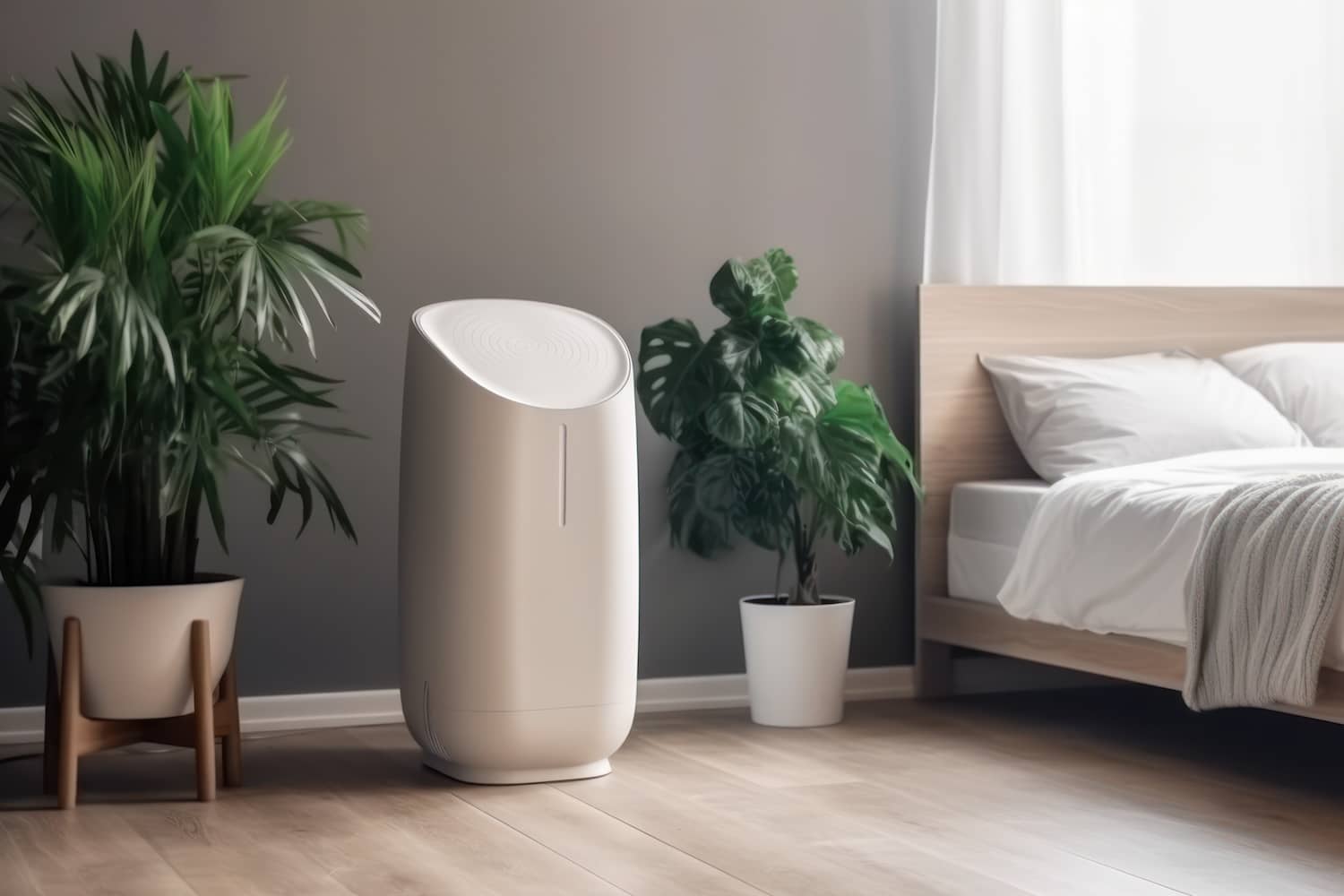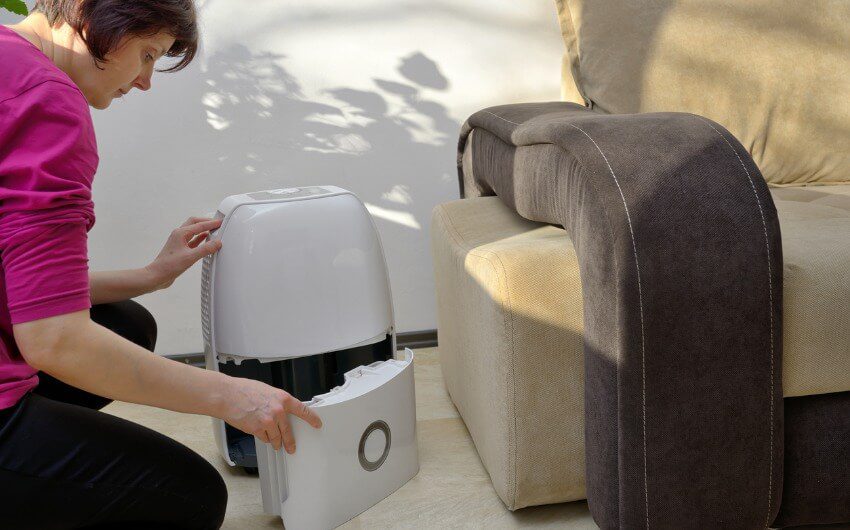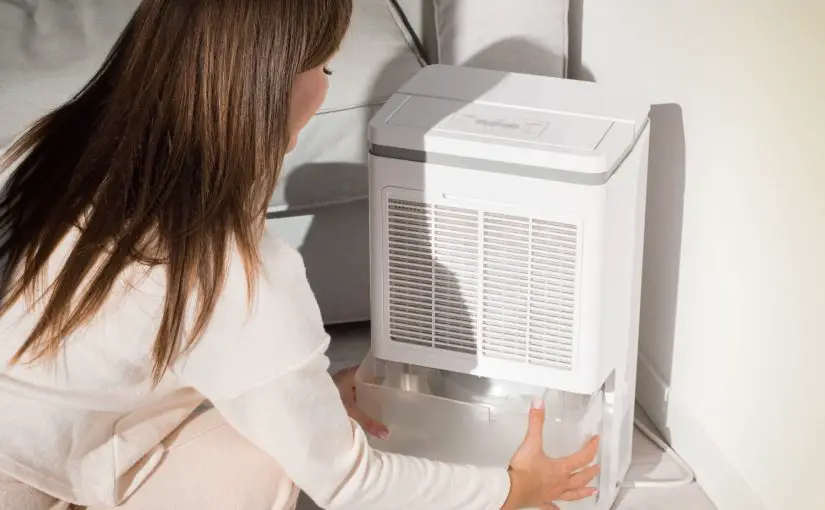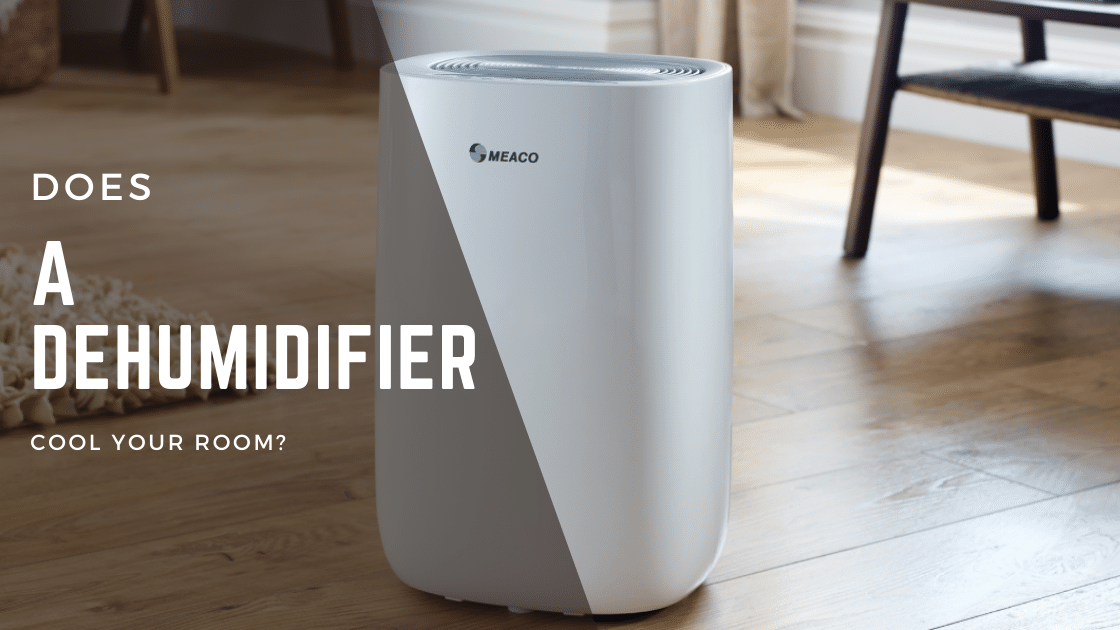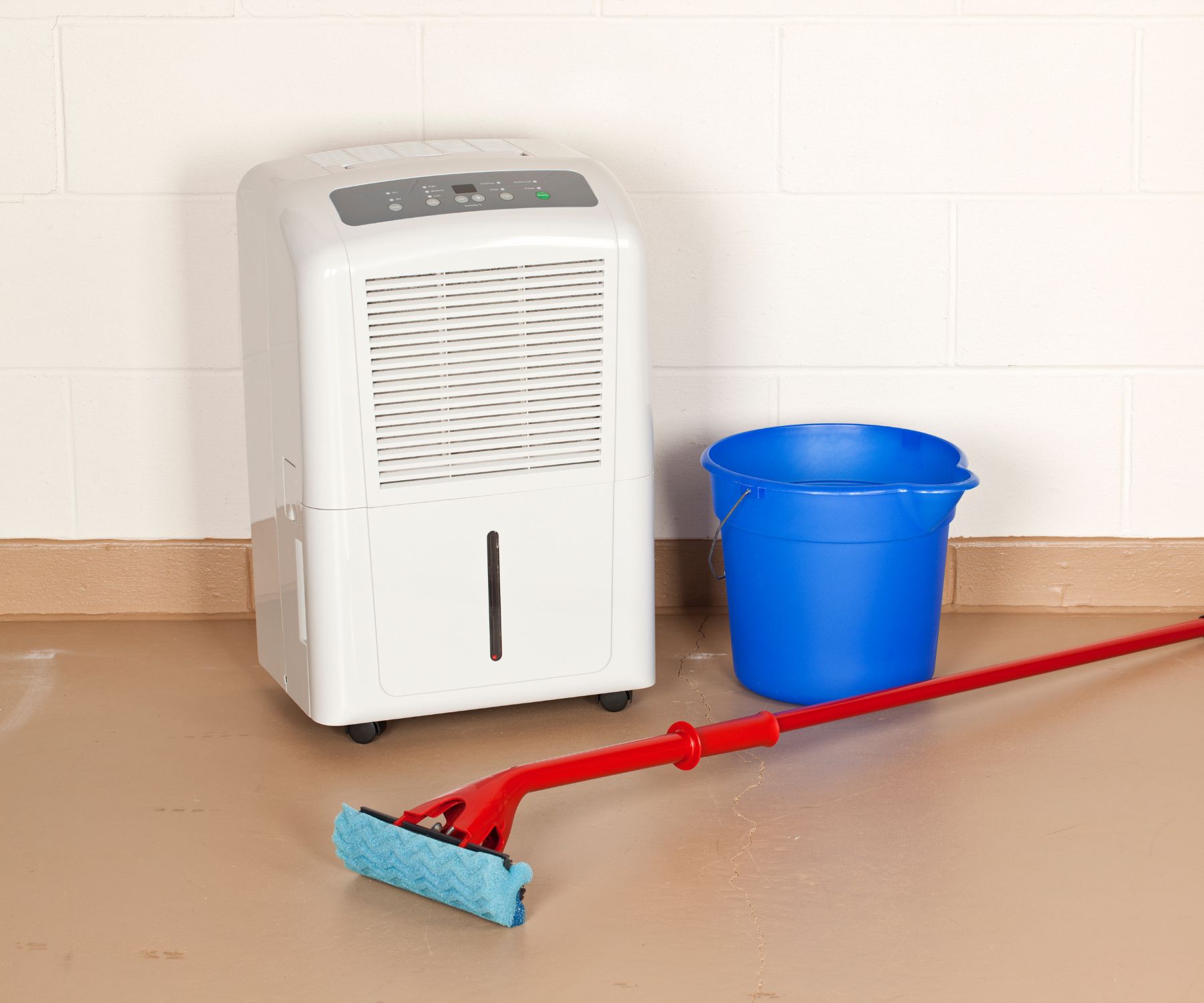Does A Dehumidifier Cool A Room

The quest for comfortable indoor environments often leads homeowners and businesses alike to explore various climate control solutions. Among these, dehumidifiers frequently spark a particular question: "Does a dehumidifier cool a room?" While the answer isn't a straightforward "yes," understanding the mechanics of dehumidification and its impact on perceived temperature is crucial for making informed decisions about energy efficiency and cost savings.
Understanding Dehumidifiers: More Than Just Moisture Removal
A dehumidifier's primary function is to reduce the humidity level in the air. High humidity makes the air feel warmer than it actually is. When humidity is high, sweat doesn't evaporate as efficiently, hindering the body's natural cooling process. Dehumidifiers work by drawing in moist air, cooling it to condense water vapor, and then releasing the drier air back into the room. This process involves several key components:
- Fan: Draws air into the unit.
- Cooling Coils: Refrigerant-filled coils that cool the air below its dew point.
- Condensation Tank: Collects the condensed water.
- Reheating Coils: Slightly warm the air before releasing it back into the room.
While the dehumidifier extracts moisture, the refrigeration cycle generates heat. The motor that runs the compressor and fan also adds heat. This means that, overall, a dehumidifier doesn't technically cool a room. In fact, it typically adds a small amount of heat to the space.
The Psychological and Physiological Effects of Lower Humidity
Despite adding a small amount of heat, a dehumidifier can make a room feel cooler. This is due to the impact of humidity on our perception of temperature. When humidity is low, sweat evaporates more readily, cooling our skin and making us feel more comfortable. A study by the American Society of Heating, Refrigerating and Air-Conditioning Engineers (ASHRAE) has shown that people generally feel more comfortable at higher temperatures when the humidity is lower. For example, you might feel just as comfortable at 78°F with 40% humidity as you would at 75°F with 70% humidity.
By reducing the humidity, a dehumidifier allows your body to regulate its temperature more effectively, creating a sense of coolness even if the actual air temperature hasn't decreased. This is where the energy savings come in.
Energy Savings and ROI: How Dehumidifiers Contribute to Lower Bills
The perceived cooling effect of a dehumidifier can translate into significant energy savings. If you can comfortably raise your thermostat by a few degrees after using a dehumidifier, you'll reduce the workload on your air conditioner. Air conditioners consume significantly more energy than dehumidifiers. According to Energy Star, certified dehumidifiers are approximately 15% more energy-efficient than standard models. Here's a breakdown of how dehumidifiers contribute to lower energy bills:
- Reduced Air Conditioner Usage: By making the room feel cooler, you can reduce the amount of time your air conditioner runs, leading to lower energy consumption.
- Targeted Humidity Control: Dehumidifiers allow you to target specific areas with high humidity, such as basements or bathrooms, rather than cooling the entire house.
- Lower Energy Consumption Compared to AC: Dehumidifiers typically consume less energy than air conditioners, especially window units.
The ROI of a dehumidifier depends on several factors, including the cost of the unit, the size of the space, and the local energy rates. A well-maintained, Energy Star certified dehumidifier can pay for itself in energy savings within a few years, especially in humid climates. Furthermore, reducing moisture can prevent mold growth, saving money on potential remediation costs.
Calculating Potential Savings
To estimate potential savings, consider the following:
- Determine the wattage of your dehumidifier. This information is usually found on the unit's label.
- Estimate the number of hours per day you plan to run the dehumidifier.
- Find your local electricity rate (dollars per kilowatt-hour).
- Multiply the wattage by the hours per day, then divide by 1000 to get kilowatt-hours per day.
- Multiply the kilowatt-hours per day by your electricity rate to get the daily cost.
- Multiply the daily cost by 30 to get the monthly cost.
- Compare the estimated monthly cost of running the dehumidifier with the potential savings from reduced air conditioner usage. A smart thermostat with humidity sensors can help you track these savings more accurately.
Smart Home Integration: Optimizing Dehumidifier Performance
Integrating dehumidifiers into a smart home system offers enhanced control and efficiency. Smart dehumidifiers can be controlled remotely via smartphone apps, allowing you to adjust settings based on real-time humidity levels. Some models also feature smart sensors that automatically adjust the dehumidification level based on pre-set parameters.
Smart thermostats with humidity sensors can work in conjunction with smart dehumidifiers to optimize climate control. For example, if the humidity level rises above a certain threshold, the thermostat can automatically activate the dehumidifier. Conversely, if the humidity drops below a certain level, the thermostat can adjust the temperature accordingly. This integration ensures that your home remains comfortable and energy-efficient without requiring constant manual adjustments.
Benefits of smart home integration include:
- Remote Control: Adjust settings from anywhere using a smartphone or tablet.
- Automated Operation: Set schedules and humidity targets for hands-free operation.
- Real-Time Monitoring: Track humidity levels and energy consumption using smart sensors.
- Integration with Other Smart Devices: Coordinate climate control with other smart home devices, such as thermostats and air purifiers.
Government Guidelines and Rebates: Incentives for Energy-Efficient Dehumidification
The Environmental Protection Agency (EPA) offers the Energy Star certification for dehumidifiers that meet strict energy efficiency standards. Purchasing an Energy Star certified dehumidifier not only reduces your energy consumption but also makes you eligible for rebates and incentives in some regions. Many utility companies and local governments offer rebates on Energy Star certified appliances, including dehumidifiers. Check with your local utility company or visit the Energy Star website to find available rebates in your area. These rebates can significantly reduce the upfront cost of purchasing a dehumidifier, further enhancing its ROI.
Choosing the Right Dehumidifier: Key Considerations
Selecting the right dehumidifier is crucial for achieving optimal performance and energy savings. Consider the following factors when choosing a dehumidifier:
- Room Size: Choose a dehumidifier with the appropriate capacity for the size of the space you need to dehumidify. Dehumidifiers are typically rated by the amount of water they can remove per day (e.g., 30 pints, 50 pints, 70 pints).
- Energy Efficiency: Look for Energy Star certified models to minimize energy consumption.
- Features: Consider features such as automatic shutoff, adjustable humidity settings, and a built-in humidistat.
- Noise Level: Some dehumidifiers can be quite noisy, so choose a model with a low noise rating if you plan to use it in a bedroom or living area.
- Drainage Options: Dehumidifiers typically have a collection tank that needs to be emptied regularly. Some models also offer a continuous drainage option, allowing you to connect a hose and drain the water directly into a sink or drain.
HVAC Contractor Solutions: Professional Installation and Maintenance
While many dehumidifiers are designed for DIY installation, consulting with an HVAC contractor can ensure proper sizing and placement. An HVAC professional can assess your home's specific humidity challenges and recommend the most effective dehumidification solution. They can also provide professional installation and maintenance services, ensuring that your dehumidifier operates efficiently and reliably for years to come.
Furthermore, HVAC contractors can integrate dehumidifiers into existing HVAC systems, creating a comprehensive climate control solution. This may involve installing a whole-house dehumidifier that works in conjunction with your central air conditioning system. Whole-house dehumidifiers offer several advantages over portable units, including:
- Whole-House Coverage: Dehumidify the entire home rather than just specific rooms.
- Quieter Operation: Typically quieter than portable units.
- More Energy-Efficient: Often more energy-efficient than multiple portable units.
- Automatic Operation: Integrate seamlessly with existing HVAC controls.
Conclusion: Dehumidifiers as Part of a Comprehensive Energy-Efficiency Strategy
While a dehumidifier doesn't technically cool a room, its ability to lower humidity levels can create a significant sense of coolness, allowing you to raise your thermostat and reduce your air conditioning usage. By choosing an Energy Star certified model, integrating it into a smart home system, and consulting with an HVAC professional, you can maximize the energy savings and comfort benefits of dehumidification. A dehumidifier can be a valuable tool in a comprehensive energy-efficiency strategy, helping you save money and create a more comfortable and healthy indoor environment. It's not just about cooling; it's about smart climate control and understanding how humidity impacts your comfort and energy bills. Lowering humidity is a step towards both personal comfort and a greener footprint.
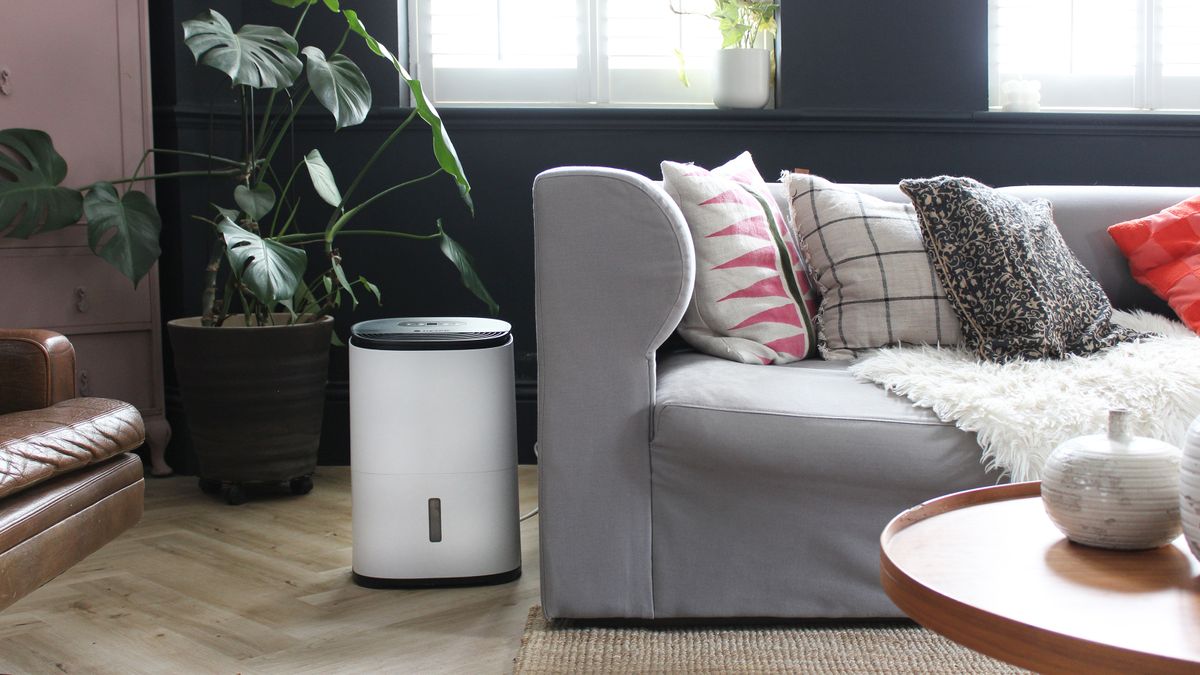
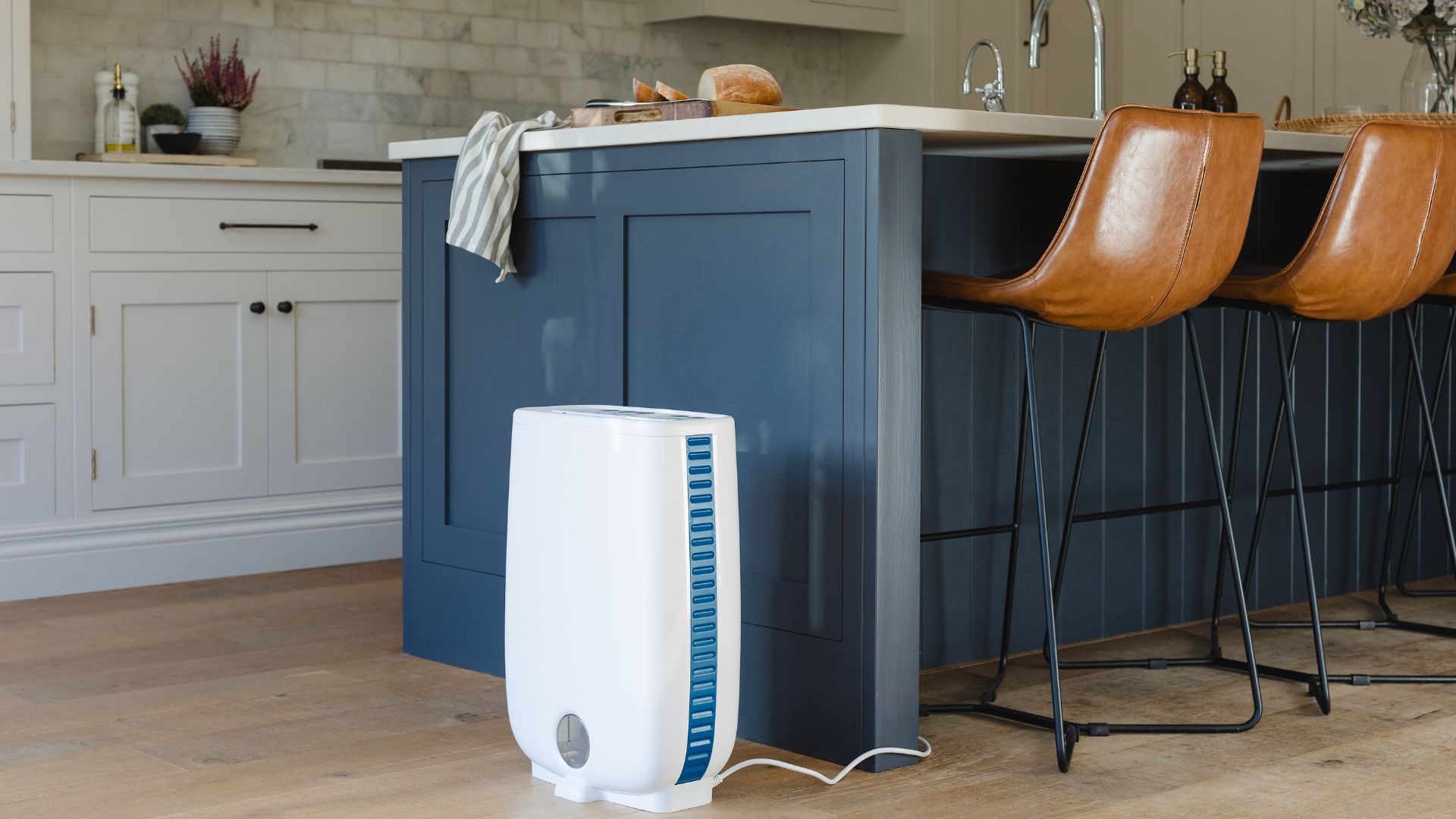
:max_bytes(150000):strip_icc()/GettyImages-1151153967-4f6e889c45484ba8bcbcbd5ef8ae29bf.jpg)
